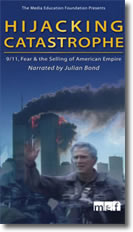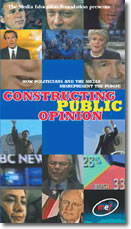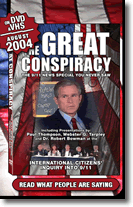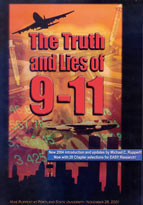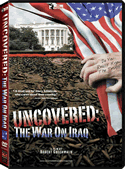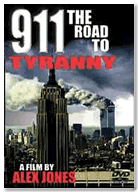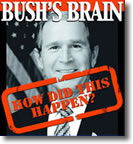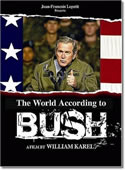 |
Guilt by Declaration of Innocence
By
Dylan Otto Krider
In retrospect, the most hilarious thing about the lead up to the Iraq War has to be the 12,000 page document Iraq was forced to turn over to the UN accounting for all its Weapons of Mass Destruction. When Iraq handed the report over on December 7, 2003 stating they had none, their failure to “come clean” became one of the most cited reasons for military action.
Let me put it another way: Iraq was found guilty for saying it was innocent. Now that it’s looking more and more like the most accurate pre-war assessment was given by France and Germany, well, you start to see the irony. What exactly did Hussein not “come clean” about in his report?
Let’s look at the two “holes” in that report the Administration chose to highlight at the time: “purchases of uranium in Africa” and “high-tech equipment that could be used in uranium enrichment.” That sounds eerily similar to the forged Nigerian documents and aluminum tubes we now know were useless to any fledgling nuclear program. So in these cases there was nothing for Iraq to declare.
The other prominent US complaint was that the report consisted mainly of old material, with little new added since 1991. Our inspections and interrogations of Iraqi scientists and leaders since the invasion has led us to the conclusion that WMD production was indeed halted around that time. So what “new” information was missing from this report? It’s starting to look more and more accurate all the time. (Not surprising since Hussein was willing to do anything at that point to stave off invasion – even telling the truth.)
Whether or not WMDs are ever actually found isn’t really the point -- although by now, it’s probably safe to say Hussein didn’t have the capability to launch chemical weapons at our troops within 45 minutes as British intelligence claimed. What’s troubling about this admission-of-innocence-as-proof-of-guilt standard Bush laid out for us is that no country could ever not meet our standards for invasion. I suspect Sweden would say the same thing about their WMD stock piles. Suspecting they’re lying is all the justification we’d need to move in. Don’t turn anything up? Well, we meant well. We did what we thought was right.
This isn’t to say Iraq is innocent. It’s just a matter of whether a country is entitled to some of the same due process we granted Charles Manson. Why not apply a few of the very rights and principles we claim to be spreading to the international stage?
UN inspections were definitely justified even upon threat of war – we obtained our search warrant – but we ought to have treated any country, no matter how suspicious, as innocent until proven guilty – or at least a damn step closer to proven than we appear to have been. We should have imposed a punishment more appropriate to the crime before rushing to enforce the international equivalent of the death penalty. There ought to be something about self-incrimination…
This isn’t about being nice to dictators. It’s about putting some semblance of a system in place that allows us to determine when war is justified beyond the whims of a not terribly world-wise leader. “Bush says so” obviously isn’t good enough. There are guidelines even he should follow. If human rights abuses are the standard, then let us impose them across the board. If that’s not enough reason, let us articulate what it is that makes Iraq different from Liberia. Otherwise, you see the result.
Will we have the resources to intervene when a country truly does represent an imminent threat? Forget international support -- can we muster American support for the next action now that our credibility has been shot? If we had put all this focus on the people who actually flew their airplanes into our buildings, would Osama bin Laden still be plotting his next attack in the mountains of Afghanistan?
In the end, the American system of justice is better -- not for Hussein, but for us. We should have a little more faith in it.
Dylan Otto Krider is the founder of www.whoslying.org, a nonprofit devoted to correcting statements that do not responsibly reflect objective reality.
|

